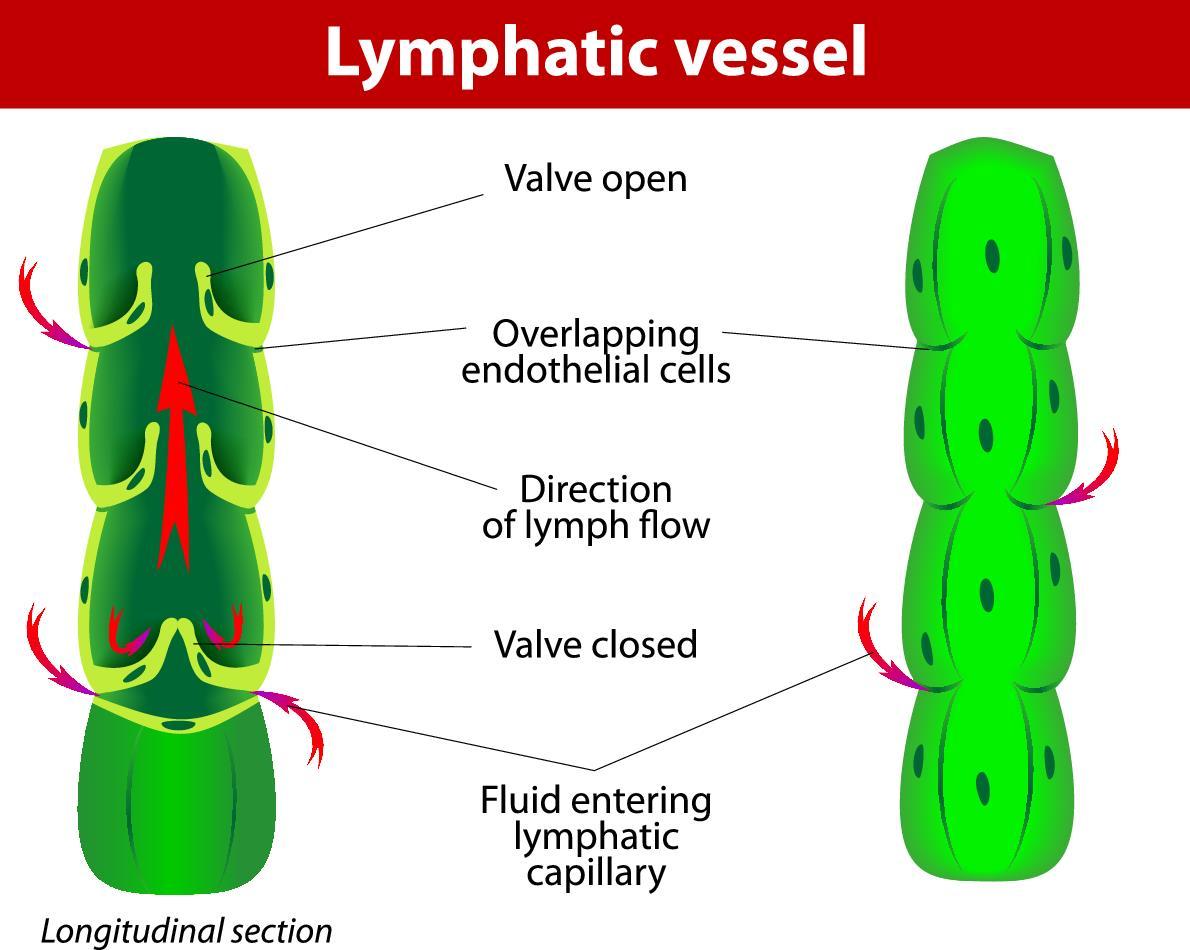Lymphedema refers to swelling that generally occurs in one or both of your arms or legs. There are many reasons your arms or legs may swell (e.g. venous insufficiency or venous thrombosis, kidney insufficiency, heart failure).
Lymphedema is related to a disorder (usually acquired, rarely congenital) of your lymphatic system (lymphatic vessels and lymphnodes). Our lymphatic system is crucial to keeping your body healthy. The lymph vessels circulate the lymph fluid throughout your body, collecting bacteria, viruses and waste products. These are filtered through the lymphnodes where infection fighting cells reside and ultimately flushed from your body.
Our lymphatic system is crucial to keeping your body healthy. The lymph vessels circulate the lymph fluid throughout your body, collecting bacteria, viruses and waste products. These are filtered through the lymphnodes where infection fighting cells reside and ultimately flushed from your body.
Lymphedema occurs when for some reason the flow through your body's network of lymph vessels or nodes is blocked and the lymph fluid cannot drain out of your leg or arm.
There are two types of lymphedema: primary and secondary.
Primary is rare. It happens when certain lymph vessels are missing or faulty at birth.
Secondary lymphedema is the most common. It can develop after surgery for removal of lymphnodes for cancer (e.g. breast cancer), after radiation or because of a tumor invading and blocking the lymphnodes. Benign causes of lymphedema can be any surgery because of injury or interruption of the lymphatic vessels, can be infection or trauma. You can get lymphedema within a few days of any of the above incidents, but it can also happen months or years afterward.
Your vascular surgeon will take a thorough past medical history and along with the physical exam and imaging studies will differentiate whether this is a true lymphedema or edema related to other causes (e.g. venous insufficiency, venous thrombosis, renal or heart insufficiency).
Lymphedema can cause long-term physical, psychological and social problems for patients. There's no cure but it can be managed with early diagnosis and diligent care of your affected limb swelling and associated symptoms can be minimized.
